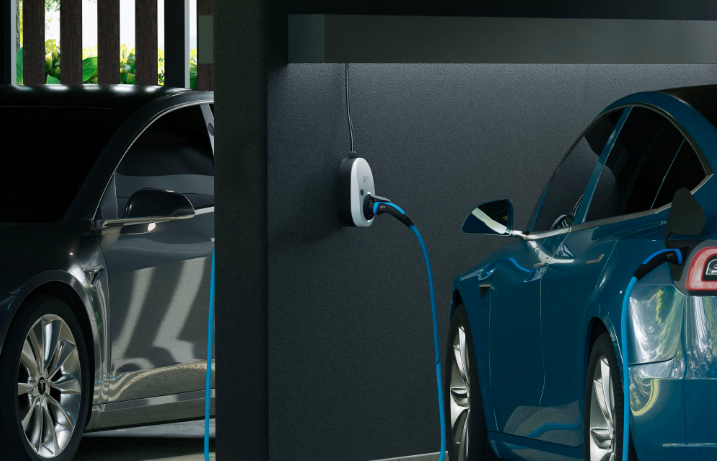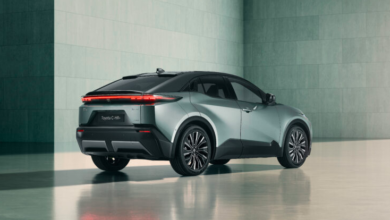The Critical Role of Electric vehicle charging equipment manufacturersin a Sustainable Future

The surge in electric vehicle (EV) adoption is reshaping the global transportation landscape. This transition towards cleaner, more sustainable mobility options hinges heavily on the availability and efficiency of charging infrastructure. At the heart of this ecosystem are the electric vehicle charging station manufacturers, the key players responsible for designing, producing, and distributing the charging stations that empower electric vehicles worldwide.
This article explores the vital role of electric vehicle charging equipment manufacturers the technological advancements they drive, challenges they face, and the significant impact they have on accelerating the electric revolution.
Understanding the Role of Electric Vehicle Charging Station Manufacturers
The journey toward widespread EV adoption is intrinsically linked to the presence of reliable, accessible, and user-friendly charging stations. electric vehicle charging equipment manufacturers fulfill this critical need by developing a variety of charging solutions tailored to different environments and vehicle requirements.
Their portfolio ranges from residential home chargers, workplace charging units, public charging stations, to ultra-fast charging hubs located along highways. The diversity of their offerings ensures that EV drivers can conveniently recharge their vehicles wherever they are.
Types of Charging Stations Offered by Manufacturers
To cater to the diverse needs of EV users, electric vehicle charging equipment manufacturers produce different types of charging stations:
- Level 1 Chargers: These chargers use standard household outlets and are mostly suited for overnight charging at home. Although slower, they are cost-effective and simple to use.
- Level 2 Chargers: Operating at higher voltages, these chargers provide faster charging times and are commonly installed in homes, offices, and public parking areas.
- DC Fast Chargers: These chargers deliver high power directly to the EV’s battery, drastically reducing charging time to under an hour in many cases. They are mostly found at commercial and highway locations for quick top-ups.
- Wireless Chargers: An emerging technology where vehicles can charge without cables, using inductive charging pads. While not yet mainstream, wireless charging offers promising convenience.
See also: Top 3 Fantastic Travel Attractions in Ho Chi Minh City
Technological Innovations by Electric Vehicle Charging Station Manufacturers
Innovation is a hallmark of electric vehicle charging equipment manufacturers as they strive to improve charging speed, efficiency, and user experience. Some key technological trends include:
- Smart Charging Solutions: Connected chargers with Wi-Fi or cellular capabilities allow for remote monitoring, scheduling, and even demand response functionalities to optimize energy use and cost.
- Multi-Standard Support: With various connector types such as CCS, CHAdeMO, and Tesla’s proprietary plug, manufacturers ensure their stations are compatible with a broad range of EVs.
- Modularity and Scalability: Modern charging stations are designed to be scalable, enabling easy upgrades and maintenance. This approach helps businesses future-proof their infrastructure.
- Renewable Energy Integration: Many manufacturers are focusing on integrating charging stations with renewable energy sources like solar and wind, making the charging process greener.
- Vehicle-to-Grid (V2G) Capability: Some advanced charging stations support V2G technology, where EVs can feed energy back to the grid, enhancing grid stability and opening new revenue streams.
Challenges Faced by Electric Vehicle Charging Station Manufacturers
Despite their crucial role, electric vehicle charging equipment manufacturers encounter several challenges:
- Infrastructure Limitations: Fast charging requires significant electrical infrastructure upgrades in many areas, which can delay deployment.
- High Production Costs: The development of advanced charging stations with smart features demands substantial R&D investment.
- Regulatory Hurdles: Compliance with varying national and regional standards often complicates the manufacturing and certification process.
- User Experience: Ensuring that charging stations are intuitive and reliable remains a priority, as negative experiences can deter potential EV buyers.
- Market Competition: With many players entering the market, manufacturers must continuously innovate to differentiate themselves.
Environmental and Economic Benefits Driven by Manufacturers
electric vehicle charging equipment manufacturers contribute not only to the environment but also to economic growth:
- Reducing Carbon Footprint: By facilitating EV usage, charging stations help cut greenhouse gas emissions and reduce dependence on fossil fuels.
- Creating Jobs: The manufacturing, installation, and maintenance of charging stations generate new employment opportunities in multiple sectors.
- Supporting Grid Modernization: Advanced chargers promote grid stability and encourage the integration of renewable energy, contributing to a more resilient power system.
- Boosting Local Economies: Widespread charging infrastructure attracts EV drivers, benefiting retail and service businesses.
Choosing the Right Electric Vehicle Charging Station Manufacturer
For businesses, municipalities, or property owners looking to install charging stations, selecting the right manufacturer is vital. Here are key considerations:
- Reliability and Quality: Look for manufacturers with proven track records and products that meet international safety and quality standards.
- Service and Support: Efficient customer service and technical support are critical to maintaining uptime.
- Technological Compatibility: Ensure the manufacturer’s stations support multiple charging standards and offer smart features for future readiness.
- Cost-effectiveness: Evaluate pricing and financing options to balance upfront costs with long-term benefits.
- Sustainability Commitment: Choose manufacturers committed to eco-friendly practices and renewable energy integration.
Noteworthy Electric Vehicle Charging Station Manufacturers
Several companies have established themselves as leaders in the charging station manufacturing sector:
- chargepoint: Known for its extensive network and smart, scalable charging solutions.
- abb: A pioneer in fast charging technology with global reach.
- tesla: Famous for its proprietary supercharger network supporting its electric vehicles.
- blink charging: Offering both residential and commercial smart charging options.
- siemens: Providing integrated charging infrastructure solutions with a focus on grid compatibility.
Each manufacturer brings unique strengths to the market, catering to various segments and geographies.
Conclusion
electric vehicle charging equipment manufacturers are the unsung heroes powering the clean transportation revolution. By delivering advanced, efficient, and accessible charging infrastructure, they enable the widespread adoption of electric vehicles, reduce environmental impacts, and foster economic growth.
As the world accelerates toward a sustainable future, choosing the right manufacturer and supporting their innovations will be pivotal. Their work ensures that driving electric is not just possible, but practical and enjoyable for millions worldwide.


